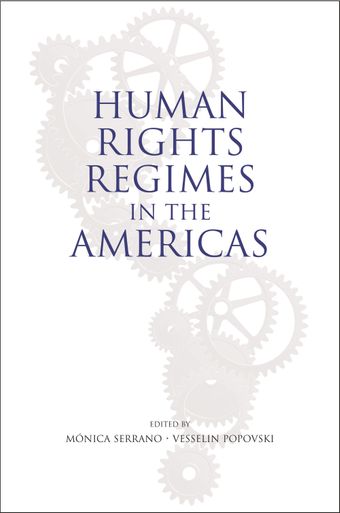Human rights in context: Brazil

- Author: Fiona Macaulay
- Main Title: Human Rights Regimes in the Americas , pp 133-155
- Publication Date: October 2013
- DOI: https://doi.org/10.18356/16ea5054-en
- Language: English
A quarter century after the return to civilian rule in 1985, Brazil scores well on a number of minimum procedural measures of political rights: universal suffrage (illiterates acquired the right to vote in the 1988 Constitution); free and fair elections (fraud and high levels of spoilt votes were eliminated by the now comprehensive use of electronic voting); multi-party competition;1 and adequate separation of powers (excessive presidential powers, such as the extensive use of the decree law, were curtailed in 2002), with an autonomous, although not necessarily impartial or effective, judiciary. With respect to civil rights, Brazil has also signed up to all the regional and international human rights protocols and conventions, is an active backer of the United Nations (UN) system of human rights protection, and has been engaged in a gradual rapprochement with the Inter-American system. The 1988 Constitution offers wide-ranging guarantees for the protection of civil liberties, and Brazil was one of the first countries to institute a National Plan of Action on Human Rights.
© United Nations
ISBN (PDF):
9789210563246
Book DOI:
https://doi.org/10.18356/a4e5bef1-en
Related Subject(s):
Human Rights and Refugees
Sustainable Development Goals:
Countries:
Brazil
-
From This Site
/content/books/9789210563246c007dcterms_title,dcterms_subject,pub_keyword-contentType:Journal -contentType:Contributor -contentType:Concept -contentType:Institution105
/content/books/9789210563246c007
dcterms_title,dcterms_subject,pub_keyword
-contentType:Journal -contentType:Contributor -contentType:Concept -contentType:Institution
10
5

